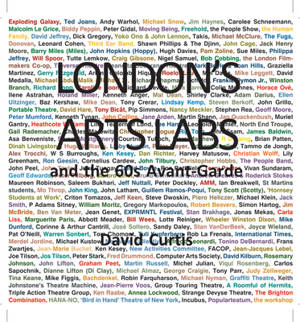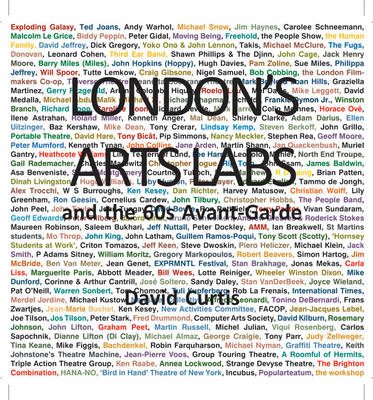
- Afhalen na 1 uur in een winkel met voorraad
- Gratis thuislevering in België vanaf € 30
- Ruim aanbod met 7 miljoen producten
- Afhalen na 1 uur in een winkel met voorraad
- Gratis thuislevering in België vanaf € 30
- Ruim aanbod met 7 miljoen producten
Omschrijving
This is the story of two short-lived artist-run spaces that are associated with some of the most innovative developments in the arts in Britain in the late 1960s. The Drury Lane Arts Lab (1967-69) was home to the first UK screenings of Andy Warhol's twin-screen 3 hour film Chelsea Girls, challenging exhibitions (John and Yoko / John Latham / Takis / Roelof Louw), poetry and music (first UK performance of Erik Satie's 24-hour Vexations) and fringe theatre (People Show / Freehold / Jane Arden's Vagina Rex and the Gas Oven / Will Spoor Mime Theatre). The Robert Street 'New Arts Lab' (1969-71) housed Britain's first video workshop TVX, the London Filmmakers Co-op's first workshop and a 5-days-a-week cinema devoted to showing new work by moving-image artists (David Larcher / Malcolm Le Grice / Sally Potter / Carolee Schneemann / Peter Gidal). It staged J G Ballard's infamous Crashed Cars exhibition and John & Dianne Lifton's pioneering computer-aided dance/mime performances.
The impact of London's Labs led to an explosion of new artist-led spaces across Britain. This book relates the struggles of FACOP (Friends of the Arts Council Operative) to make the case for these new kinds of space and these new art-forms and the Arts Council's hesitant response - in the context of a popular press already hostile to youth culture, experimental art and the 'underground'. With a Foreword by Andrew Wilson, Curator Modern & Contemporary British Art and Archives, Tate Gallery.
Specificaties
Betrokkenen
- Auteur(s):
- Uitgeverij:
Inhoud
- Aantal bladzijden:
- 212
- Taal:
- Engels
Eigenschappen
- Productcode (EAN):
- 9780861967483
- Verschijningsdatum:
- 24/11/2020
- Uitvoering:
- Paperback
- Formaat:
- Trade paperback (VS)
- Afmetingen:
- 198 mm x 239 mm
- Gewicht:
- 589 g

Alleen bij Standaard Boekhandel
Beoordelingen
We publiceren alleen reviews die voldoen aan de voorwaarden voor reviews. Bekijk onze voorwaarden voor reviews.











